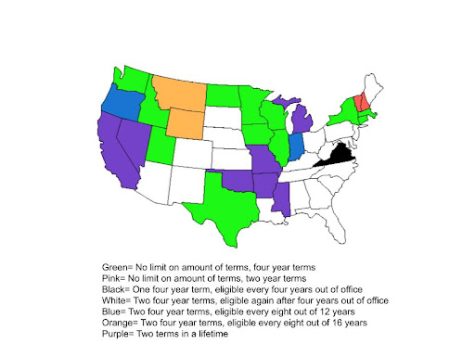Have You Heard of the Pink Tax?

‘Aesthetic’ Women’s marketed products.
February 7, 2023
The Pink Tax, what is it? It’s the additional cost on products directed toward women. Although not an actual tax, there is definitely an added price to these items. These products range across the board, from razors, children’s toys, to even the extreme of pens. This extra cost comes simply from the fact that the packaging and name of the product are pretty and pastel, with the cost of production very rarely requiring a markup. With many of the products geared towards women, female consumers pay for names, like Old Spice’s ‘Krakengard’ and Secret’s ‘Delicate Rose’. Not to mention push marketing and unnecessary add-ons also that raise the price, all for the cash grab.
Why does the Pink Tax exist? In short terms, money. They often will put more money into marketing for these products, creating a push in the market and in society. As they spend more on marketing, the price rises, and more consumers feel forced to buy the higher-priced, more “quality” products. This earns stingy companies more money. Even when they don’t spend more on marketing, companies take advantage of society pressuring women when it comes to their appearance and raise the prices anyway. Balance Money says women pay more for products 42% of the time. In the end, women feel forced to buy the high-priced products, and many buy them without even noticing the price gap.
There are many examples of the Pink Tax, many of which occur in hygiene products. However, the Pink Tax reaches far out of that category. In 2011 BIC released a line of pens called “BIC for Her” and claimed they were a fashionable pen for women to use as an accessory or to ‘add color to your day’. They even attempted to claim they had a slimmer design for women’s hands. The reality of it is the pens were pink and purple with jewels, and were marketed them in a way to hide the fact they were just sparkly and over priced. Consider the following research about a computer mouse. Two Onn brand mouses from Walmart with the same qualities are priced differently because of the color. A pink Onn brand mouse was $14.88, however the same mouse in black was $9.88. Seeing the difference is astounding. A five-dollar difference for a color is outrageous. Even with inflation today, that five dollars could buy someone a meal. Although a mouse isn’t a necessary item, this tax is on many actual necessities. Also at Walmart, Dove branded shampoo had a dollar difference. Now, this difference isn’t as large as the mouse, but this comes with reason. It’s much harder to spot a dollar difference over a five-dollar difference. Companies are becoming more discrete with hiding the mark-up. Nonetheless, it can still be noticed and is still a problem. This can also be seen in razors/razor cartridges, body washes, soaps and more.
When asked, Olivia Roling, a CCA student, and Emily Kriegl, a member of the CCA staff and Environmental Club, if they’ve seen the Pink Tax in action they both responded with yes. Olivia stated “When I go to the store I have noticed that a very similar item from the same company advertised for men is usually cheaper than the one advertised for women.” Ms Krigel similarly said
“Absolutely, I have observed the Pink Tax.” She brought up the point: “Marketers couch these mark-ups in false promises of better quality or being more suitable towards women’s needs, but just as with my razor example, a sheet of metal that removes hair stays just that no matter what it’s packaged as,”.
At the end of the day a pen is just a pen, mouse a mouse. At the end of the day, people shouldn’t have to pay more for the color of their shampoo bottle.
What is there to be done about the Pink Tax? Consumers need to hold companies accountable. Instead of telling more lies about how the product is designed specifically for women, companies should work to either make the money worth it, or make the prices equal. However, that is an expectation that is difficult to hold money-hungry companies to. Many have been asking what could be done about the Pink Tax.
“I think solving this problem is both harder and easier than it seems,” says Ms. Kriegl. “It is hard to unlearn the added value we place in pink-tax items since it has been ingrained into us since many of us were very young.”
When it comes to the situation, our voices and where we spend our money matters. “Laws could be passed to limit this from happening but the problem is lawmakers do not care enough,” Olivia said as an option Curbing companies from adding the cost in the first place is one solution to the problem. Adding on, another solution is buying better, non-taxed products.
“I think we can best drive societal change when we vote with our money. We can resist the urge to pay extra money just for something “cute” that sits in our showers or goes in our underwear.” voices Ms. Kriegl.
By buying products that are sustainable, better quality, and are unaffected by the Pink Tax, not only do consumers put their money into something worth it, but it’s better for the environment. In a way that would further show companies that the Pink Tax No longer flies. For those unable to buy products like that, spreading awareness is and speaking up is important.
Sexism extends out of the Pink Tax, with the taxing of feminine hygiene products such as pads and tampons as ‘luxury’ items. Period hygiene should be a general expectation all over the world. It’s sad that even in developed countries it’s still a topic of discussion. “While I think the pink tax is an important issue another big issue that faces women that is very similar is the wage gap,” Olivia says. She goes on to explain, “While men and women may have different strengths and our bodies may be different we should all be treated the same on a fundamental level…”. The Pink Tax is one of the many difficulties feminine people face, along with other unfair factors like the wage gap. So much is allowed to get by in the market and it is imperative that we acknowledge the Pink Tax and that we make our voices are heard. How will you fight the Pink Tax?







